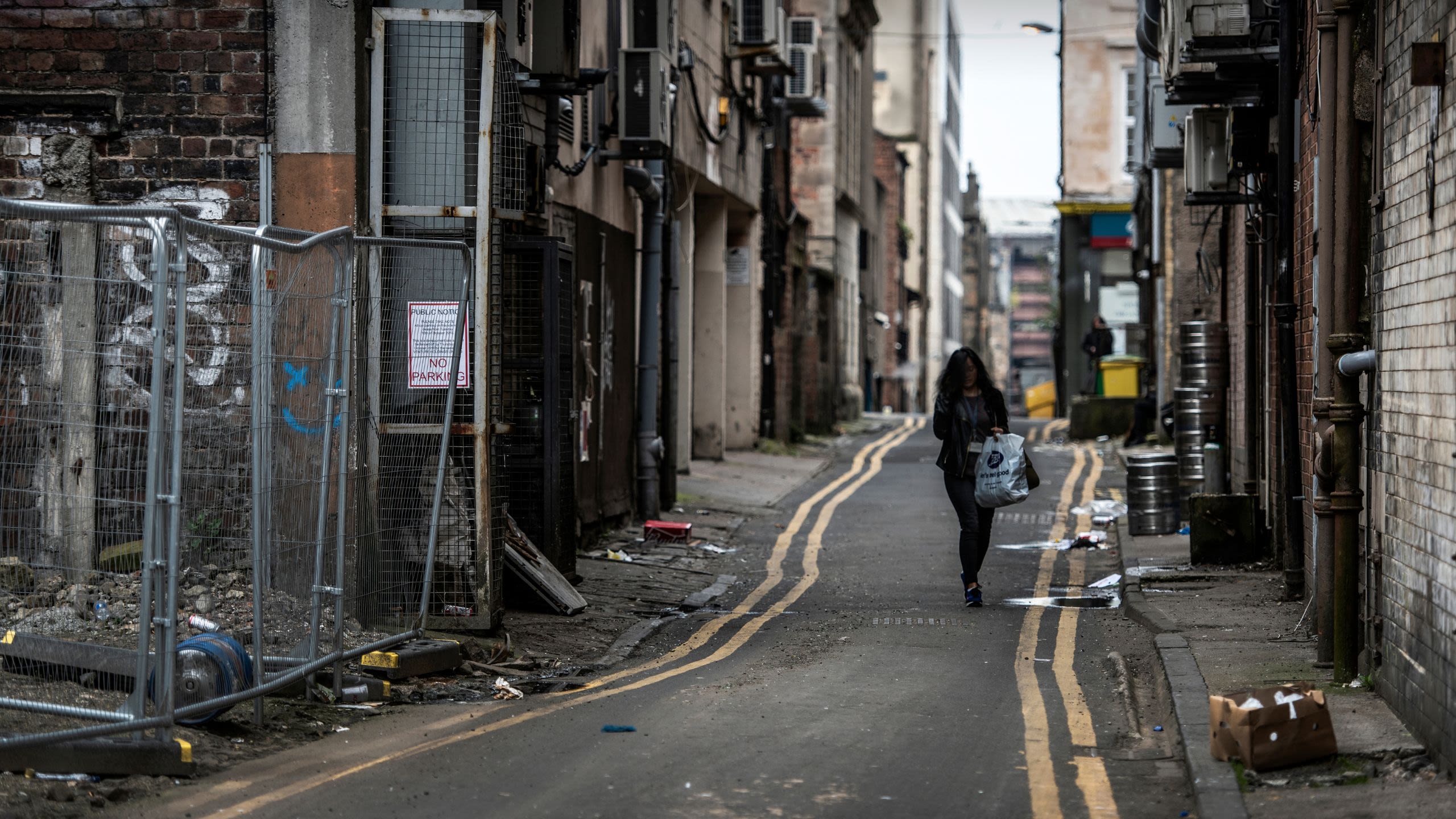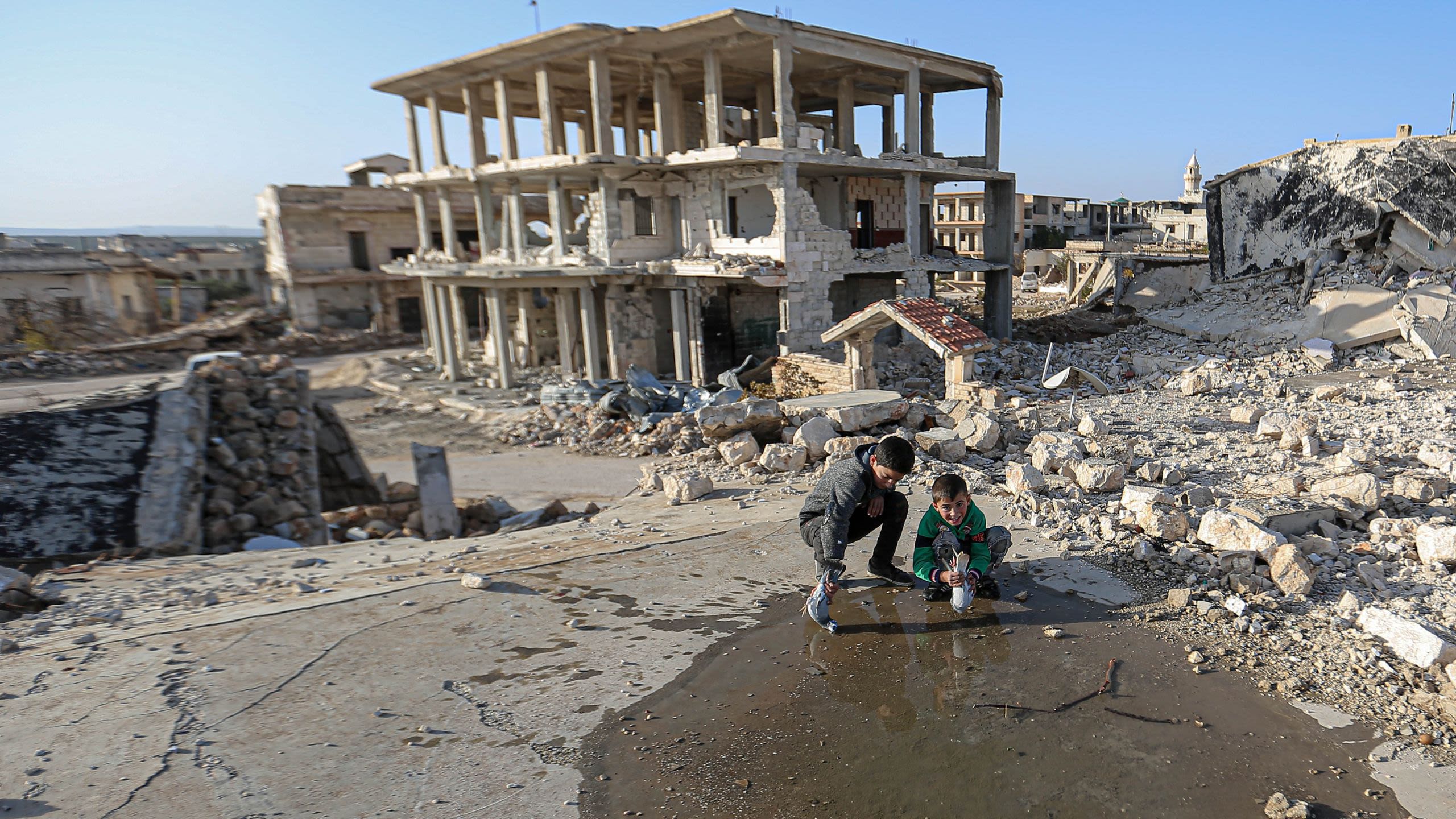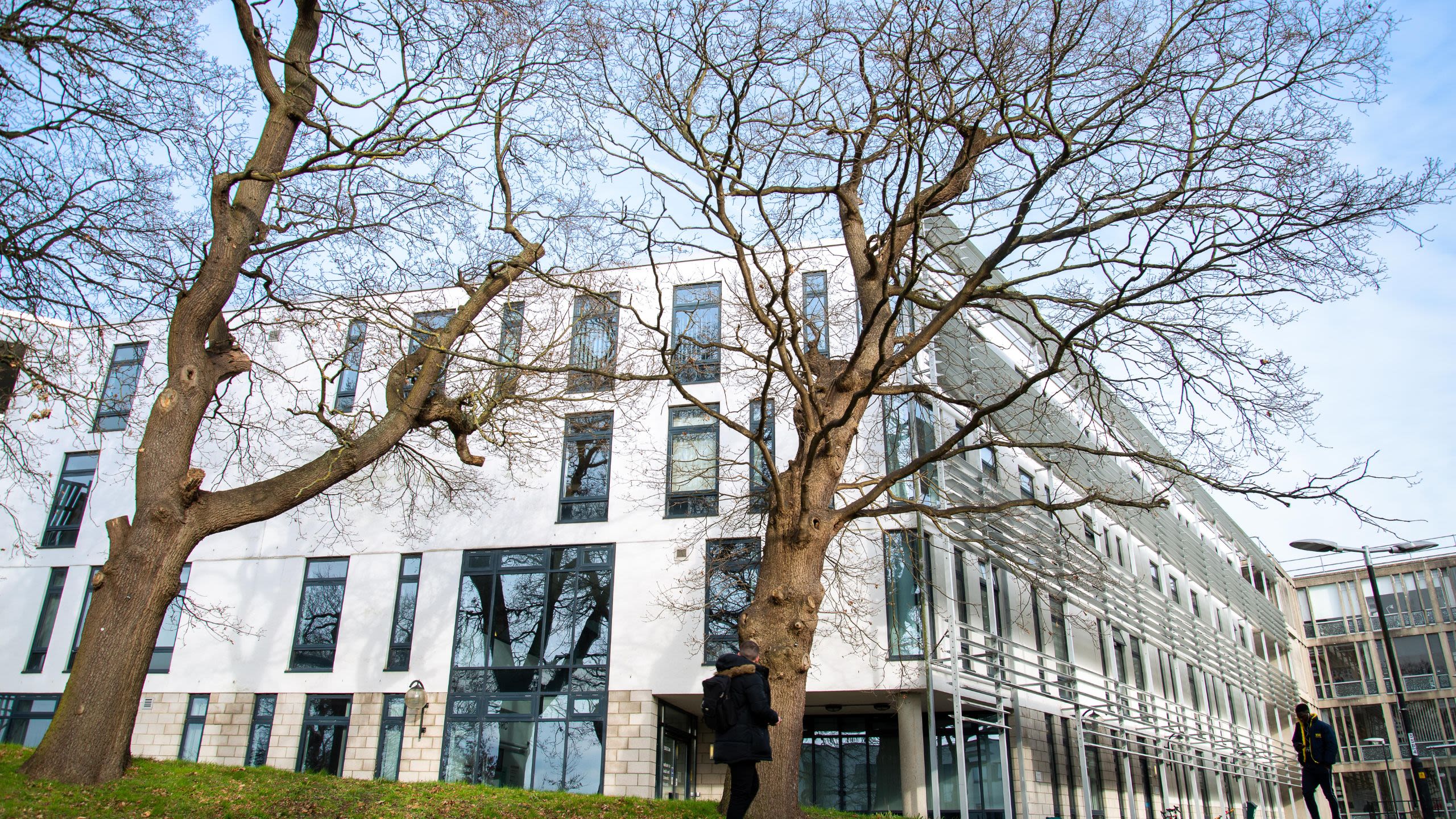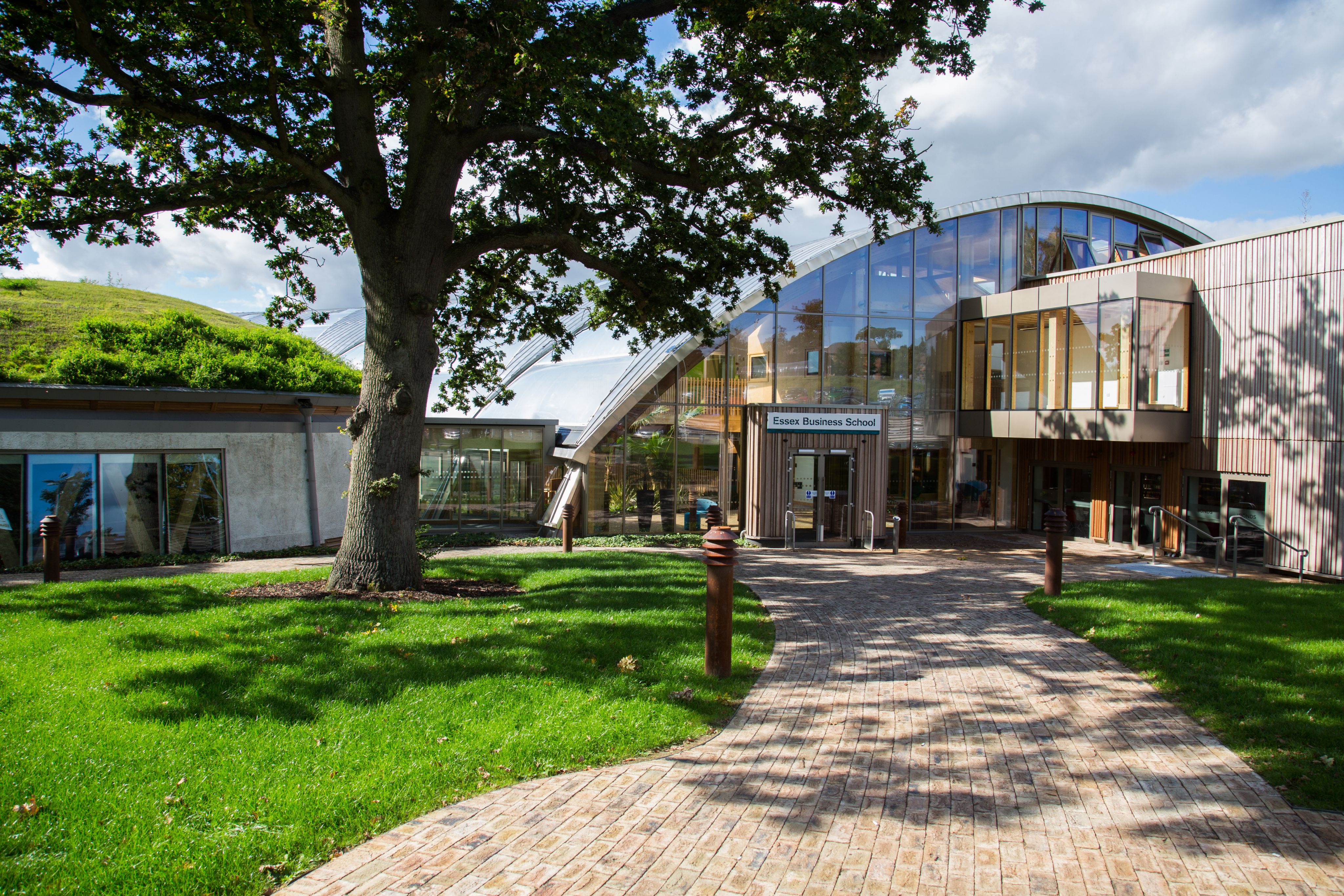Trusted social sciences
Shaping policy and improving lives

Social scientists at the University of Essex are seeking to know the world by asking critical questions and challenging convention.
Our academics are using cutting-edge methodologies and drawing on their extensive global research networks to uncover ‘inconvenient truths’, test and refine dominant theories and develop new areas of knowledge.
They are changing the world by providing compelling answers to these profound issues - influencing government policies on everything from childcare to pensions.
Pioneers of social science research
The University of Essex’s flagship research institute, the Institute for Social and Economic Research (ISER) was established in 1989 and is world-renowned for its excellence in survey design and methodology, in the analysis of longitudinal socio-economic and now biological data and for creating ground-breaking microsimulation models for socio-economic research.
Led by biologist Professor Meena Kumari, ISER's multi-disciplinary programme of world-leading research provides evidence to improve people’s lives.
The current research team includes survey methodologists, economists, sociologists, demographers, epidemiologists, data analysts and computer scientists.
ISER’s pioneering research projects are producing substantive studies uncovering the impact of public policy changes and providing vital evidence to government.
Professor Birgitta Rabe’s studies into the impact of childcare provision and the universal free school meals policies are now informing decision making at local and national government level.
Professor Rabe’s study of the impact of lockdown on children’s mental health was cited in the Chief Medical Officer’s recommendation to extend vaccination to young people in order to re-open schools safely during the pandemic.
Professor Peter Lynn leads ISER’s Cross National Surveys Unit designing robust survey methodology and advising governments around the world on survey design and data collection methods.
Professor Matteo Richiardi leads ISER’s Centre for Microsimulation and Policy Analysis, designing microsimulation models for governments worldwide, and innovating new ways to use UK data to predict policy responses through its free-to-use UKMOD tax-benefit microsimulation model.
The world-leading social science research at Essex was honoured with the prestigious Queen’s Anniversary Prize for Higher and Further Education - the highest form of national recognition for the work of a UK university.
The Award particularly recognised the work of ISER which has built a global reputation since being established in 1989 and has attracted significant funding support from the Economic and Social Research Council (ESRC).
The official commendation stated the Prize was for “authoritative social and economic research to inform government policies and improve people’s lives”.




“Understanding Society has driven a wide range of research outputs, many of which would have been weaker or impossible without the Study. It has catalysed and underpinned changes impacting people’s lives, informing policy decisions, supporting third sector campaigns and facilitating public debate of timely issues.”
Economic and Social Research Council
Pioneering research: gold dust to policymakers
For over 30 years, MiSoC - ESRC Research Centre on Micro-Social Change - has been a powerhouse of evidence, producing world-class quantitative research.
MiSoC’s long running themes are central to understanding social inequalities - how resources such as income, health and wellbeing are distributed to individuals, groups and areas.
Hosted by ISER, MiSoC is today one of the Economic and Social Research Council’s (ESRC) longest running investments, with an international reputation and an outstanding record in bringing robust social science evidence to governments so they can make informed policy decisions about what works.
The research team looks at how big shocks such as a pandemic can change our lives, as well as how our lives are impacted by policy changes such as support to work, or global issues like climate change or the growth in technology.
Recently, MiSoC’s research on the impact of childcare support has been cited as a reason for the Government’s plans for expanding childcare provision to include all children from nine months old, and MiSoC’s research into children’s mental health during lockdown was cited as evidence in the Chief Medical Officer’s recommendation to government to extend Covid vaccinations to all children from 12 years old.
Tracking your lives to help all of us
The ground-breaking research project Understanding Society has been following the lives of the same people for over 30 years.
Providing vital evidence on the experiences of real people in the UK, it is used to power official statistics, guide national policy and give insights into our economic, social and health issues.
The Study started in 1991 as the British Household Panel Survey (BHPS). After the rapid social changes of the 1980s, the BHPS was established so researchers and policymakers could better understand how changes were affecting individuals and households.
The BHPS was carried out by the University of Essex's Institute for Social and Economic Research until 2009, when it was decided to expand the study to become the more comprehensive Understanding Society.
Navigating the complex road to peace
The number of violent conflicts around the globe has increased dramatically in the past 15 years – and people’s sense of safety and security is said to be at an all-time low.
Renowned for pioneering advancements in conflict analysis, peacebuilding strategies and data-driven policymaking, our political scientists have significantly influenced efforts to better understand how to prevent and resolve violent conflicts.
Our Department of Government stands as a global powerhouse in the study of conflict and conflict resolution, advising political parties, governments and international NGOs and setting the gold standard for research and practice in this critical field for decades.
Professor Faten Ghosn, Head of our Department of Government, is working with the U.S. Air Force Academy, University of Arizona, and West Virginia University on a three-year expansion of the Correlates of War Project’s Militarized Interstate Dispute (MID) Data - the most prominent and widely used resource in the study of international conflict and international relations.
Understanding patterns of conflict is critical for informed decision-making and the MID project is advancing knowledge of the conditions under which conflict, cooperation and competition are more likely to occur.

How to live after laying down weapons
In Colombia, almost half of the people who have been part of illegal armed groups joined when they were children.
Whilst many have died or are in prison, many are wanting to down weapons and become ordinary citizens.
Helping navigate this complex process is the reintegration agency ARN (Agency for Reincorporation and Normalisation) – which is helping these former combatants gain the tools they need to recover their lives.
Peacekeeping experts Professor Han Dorussen and Dr Ximena Velasco Guachalla are leading a project to better understand the issues surrounding the reincorporation process of former FARC combatants - the main rebel movement in the long-running civil war in Colombia.
Working with colleagues and former Essex PhD students from Tadeo Lozano University in Bogota, Colombia, the project is mapping the different trajectories the former combatants have taken.
Professor Ismene Gizelis is leading an ambitious €2.47million project which explores the benefits of peacekeeping, post-conflict reconstruction and successful state building in war-torn countries.
Although UN peacekeeping operations have increasingly been criticised, The Peace Dividends and Post-conflict Reconstruction (Peace Dividends) project looks into the many positive effects which are often overlooked.
Our Regius Professor in Political Science Professor Kristian Skrede Gleditsch is an internationally-renowned figure in the study of conflict resolution, democratisation and political change.
Working with Department colleagues Dr Brian Phillips and Dr Florian Kern, and Professor Hannah Gibson, from our Department of Language and Linguistics, Professor Gleditsch is currently leading a major £2.1million project which brings together expertise from the UK and Africa to develop a deeper understanding of how multilingual skills and practices affect the risk of conflict and prospects for conflict resolution.

Making our diverse UK coastal areas more resilient
The complex challenges facing our diverse UK coastal areas are the focus of the £2.9 million ARISE project.
Focusing on the Norfolk, Suffolk, Essex and Kent coasts, which include communities from England’s highest and lowest levels of deprivation, the ARISE project will work with local stakeholders to design and test different ‘interventions’ as potential ways of tackling difficult and long-standing problems.
Project leader Professor Gina Yannitell Reinhardt, from our Department of Government, will work with Eastern ARC consortium colleagues and other institutions to investigate how to overcome the difficulties faced by this coastal region, which has more inequalities in health, wellbeing, life expectancy, earnings and education compared to nearby inland communities.

It's not what you said... it's how you said it
Sociolinguist Dr Amanda Cole, from our Department of Language and Linguistics, researches the similarities and differences in people’s speech.
Using a spectrogram which gives a visual representation of someone’s speech, she extracts numerical data to identify subtle speech differences.
Her research found working-class people were judged to be less intelligent, friendly and trustworthy than middle-class people when reading aloud the same sentence. People from ethnic minority backgrounds were evaluated as less intelligent than white people solely based on their accents.
Dr Cole said: "We live in a vicious cycle in which the most privileged speak with the most esteemed accent and so are judged as the most competent and intelligent, which helps them maintain their privilege. This way of thinking is so pervasive that it goes completely unchallenged.”
Research by fellow linguist Dr Ella Jeffries found that children from just five years old associate people with middle-class accents as being more intelligent than people with other accents.
She led a team of linguistic experts who collated children’s brain activity using EEG (electroencephalogram) caps alongside measuring the speed of their answers to indicate how embedded their attitudes towards accents were.
Across all measures, the children associated someone with the Standard Southern British English (SSBE) accent – typically described as a middle-class accent – as being clever.
Questioning social division, justice and inequality
At Essex, our Department of Sociology and Criminology investigates what connects people with each other, as well as what divides them, and explore questions of social justice and equality.
Its academics shape modern society today, advising the UN, government departments, think tanks and public bodies around the world on issues from the rights of indigenous peoples, to the regulation of the building industry, and organised crime and terrorism.
No hiding a criminal history
With the total number of domestic abuse-related incidents and crimes on the rise, bringing serial abusers to light is crucial to protect women and children at risk of harm.
Dr Kat Hadjimatheou’s research directly shaped the national policy for ‘Clare’s Law’ - the Domestic Violence Disclosure Scheme (DVDS) – which gives victims and survivors access to reliable information police hold about their partner’s true history of abuse.
Most domestic abusers have no convictions. But many have significant police records, created when victims or neighbours have called 999. These records often reveal a pattern of abuse over multiple victims and many years.
Dr Hadjimatheou’s research has shown that police sharing information from these records can empower victims and survivors of domestic abuse to make more informed decisions about their safety and their relationship and means abusers can no longer hide behind a “clean” criminal record.
Stereotypes in schools goes under the spotlight
How stereotypes are applied to students by their peers in school and how they can avoid harmful stereotypes being applied to them, is the focus of a new research project by Dr Zsofia Boda.
The project will pioneer research on applied stereotypes of peers and self-fulfilling prophecies, creating crucial new knowledge that will add to the current understanding of the reproduction of social inequalities.
Focusing on ten English secondary schools, Dr Boda’s €1.5m project will investigate how students apply stereotypes to their peers and how those stereotypes affect an individual and, ultimately, have the potential to conserve social inequalities.
“By looking at how stereotypes are applied and how people can avoid harmful stereotypes being applied to them will help us better understand why some minority students succeed against the odds. We are also hoping to identify contexts in which students are more likely to be judged based on their individual characteristics rather than wide-spread stereotypes,” explained Dr Boda.
Shaping policy and improving lives
In a world where misinformation is rife, the UK Data Service provides the largest collection of economic, population and social research data in the UK.
Used by academics around the world, it continues to be the beacon of trust for data, supporting researchers with their drive to find solutions to the many pressing challenges we face around the globe.
The lead partner, the UK Data Archive, is a trusted repository based at the University of Essex, and is a national centre of expertise in data archiving, with a renowned reputation in data governance and information security.
The Archive also offers a Trusted Research Environment (TRE) function, utilising the Five Safes Framework (developed by the UK Data Service) to allow access to sensitive data and information.
The Economic and Social Research Council (ESRC) awarded the UK Data Service £37.5 million, after receiving a strong case from the institution to continue providing its core services and further improve the quality of its support for users.
“The impact of the excellent research carried out by researchers - who have accessed the data stored at the UK Data Archive - can be seen in changes to government policy.”
Joanne Webb
Head of Department, UK Data Archive
Associate Director, UK Data Service


Research making a global impact
Essex Business School undertakes theoretical and applied research to investigate key issues and contemporary challenges within businesses, the public sector, not-for-profits and the wider world.
The School's academics engage in diverse areas of research, such as emerging markets, firm financing, corporate governance, financial econometrics and gender studies.
Its research agenda has an emphasis on sustainability practices, corporate responsibility and key technologies.
Tackling cyber threats
Micro-businesses and sole traders constitute over 95% of businesses in the UK, but they are often the most at risk of cyber crime as they often lack the resources and expertise to implement effective cyber security practices, leaving them exposed to digital threats.
A new AI-powered solution - the CyberSecurityAId toolkit - which could help millions of small businesses tackle cyber security threats, was showcased in 2025 at the Government's flagship CYBERUK’s event.
Dr Marta F Arroyabe, from Essex Business School, said: “This tool is designed to empower micro-businesses and sole traders by providing them with affordable and accessible means to enhance their cyber security knowledge and practices.
"By simplifying the often complex world of cyber security, our tool offers tailored recommendations that aim to protect their key assets, systems and processes. Our product has the potential to make a significant impact on the cyber hygiene of millions of small businesses in the UK, offering both value for users and tax payers alike."
Freelancer challenges
Academics from Essex Business School and East 15 Acting School joined forces to compile the report which highlighted the many challenges faced by freelancers in the creative industry.
The report is part of Arts Council England’s commitment to increasing support for creative and cultural freelancers and will inform its understanding of freelancers’ experience of working in the sector, enabling it to work with key stakeholders across the sector to respond to the issues raised.
Chief Executive of Arts Council England, Darren Henley said: “The data from this study allows us to compare and contrast between different disciplines, demographics and locations, helping us to better understand and respond to the varying challenges face by freelancers. This in turn will guide how we work with and for individual practitioners in the future.”
Stability for garment sector
Dr Shoba Arun is leading a three-year project aiming to achieve economic and social sustainability in the ready-made garment and fashion sector in Leicester and Dhaka.
The interdisciplinary team behind the project THRREADS will seek to find ways to support garment sector employees, suppliers and workers in order to “foster conditions for autonomy and economic justice in their workplace”.
In many cases, working conditions and rates of pay are still not adequate, while suppliers are faced with strict turnover periods. Previous negotiations over a minimum wage for garment workers sparked demonstrations on the streets in Bangladesh.
"This research will help shape policy and actions for economic and social sustainability of the industry. Such research and practical outcomes will boost confidence in a global industry that has been affected by stories of exploitation, environmental and economic challenges," said Dr Arun, from the Centre for Work, Organisation and Society.




Making a real difference to lives of families in Ghana
According to UNICEF, about 80% of cases handled by social workers in Ghana are classified as child maintenance, but there isn’t a standard approach to working with these cases.
Dr Ebenezer Cudjoe, from our Department of Psychosocial and Psychoanalytic Studies, is leading an international project to address this and make a real difference to children and families in West Africa.
Working with social workers in Ghana, the research team has successfully developed a child maintenance assessment tool (CMAT), which they are hoping will be integrated into a national web-based case management platform.
A workshop was held in April 2025 with social workers, administrators and policymakers to discuss the potential of embedding this tool into Ghana's national web-based case management platform SWIMS (Social Welfare Information Management Systems).
Global study to inspire mental health services
Professor Raluca Soreanu is leading on a project to map little-known histories of free psychoanalytic clinics, and ask how clinicians practice the social mission of psychoanalysis and how they innovate in the sphere of mental health. It will seek to inspire a new conversation on social justice and care.
The project - Free Clinics and a Psychoanalysis for the People: Progressive Histories, Collective Practices, Implications for our Times (FREEPSY) - is examining the work of psychoanalysts in free and low-cost clinics, from Latin America and North America to Europe and the NHS.
The project will create and maintain The Free Clinics Network, aiming to share the progressive histories of psychoanalysis, and to serve as a resource for clinicians and patients globally.
This five-year interdisciplinary project spans psychosocial studies, social theory, historical research and arts methods.
“I am delighted to have the opportunity to lead on this research programme, because the free clinics of psychoanalysis are laboratories of political experimentation which model different ways of working.”
Professor Raluca Soreanu
FREEPSY Principal Investigator
Find out more
Department of Economics
Department of Psychosocial and Psychoanalytic Studies
Institute for Social and Economic
Research (ISER)
Essex Business School
- Centre for Accountability and Global Development (CAGD)
- Centre for Research on Entrepreneurship, Innovation, Management and Internationalisation (REIMI)
- Centre for Work, Organisation and Society (CWOS)
- Essex Accounting Centre (EAC)
- Essex Finance Centre (EFiC)
- Centre for Commons Organising, Values Equalities and Resilience (COVER)





















